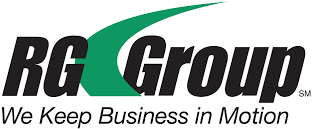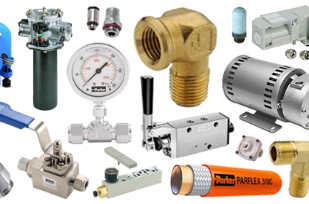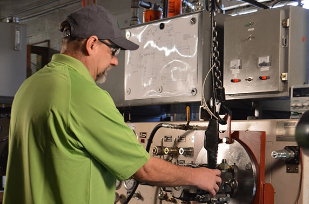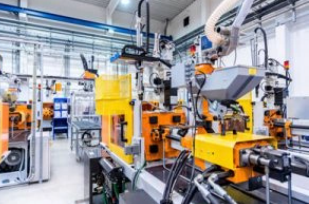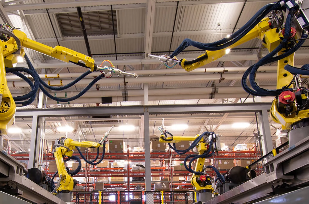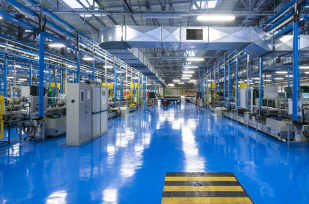In the realm of machinery operation and maintenance, every cog, gear and piston plays a vital role in ensuring seamless functionality. Among the unsung heroes in this intricate ecosystem are Filter-Regulator-Lubricators (FRLs), a trio of components combined to optimize machinery performance and longevity. Let’s delve into the world of FRLs and uncover the myriad benefits they offer.
Enhanced Equipment Longevity
At the heart of FRLs lies their capacity to prolong the lifespan of machinery. By integrating filters into the system, FRLs prevent contaminants such as dust, debris, and moisture from infiltrating critical components. This filtration mechanism not only safeguards machinery against wear and tear but also mitigates the risk of costly repairs and downtime.
Optimal Air Pressure Control
Regulators within FRLs act as the gatekeepers of air pressure, ensuring a steady and controlled flow to the machinery. By fine-tuning pressure levels, regulators optimize equipment performance, thereby minimizing energy consumption and bolstering operational efficiency. Whether it’s pneumatic tools or industrial automation systems, precise pressure regulation is indispensable for achieving peak productivity.
Lubrication for Smooth Operation
The lubricator component of FRLs injects a calculated amount of lubricant into the airflow, facilitating smooth and frictionless movement of machinery parts. This not only reduces friction-related wear but also prevents corrosion, thereby extending the operational life of critical components. From conveyor belts to hydraulic systems, proper lubrication is the cornerstone of efficient machinery operation.
Operational Consistency and Reliability
One of the most significant advantages of FRLs is their ability to uphold operational consistency and reliability. By maintaining clean air quality, optimal pressure levels, and adequate lubrication, FRL-equipped machinery operates with precision and predictability. This consistency translates into enhanced product quality, reduced production variability, and ultimately, greater customer satisfaction.
Improved Safety Standards
In industrial settings where machinery operates under high pressure and velocity, safety is paramount. FRLs contribute to a safer work environment by regulating air pressure within safe thresholds and preventing malfunctions caused by contaminated or inadequately lubricated components. By reducing the likelihood of equipment failures and accidents, FRLs play a pivotal role in ensuring workplace safety compliance.
Cost Savings and Return on Investment
While there is an initial investment to implement FRLs, the long-term benefits far outweigh the costs. By extending machinery lifespan, reducing maintenance expenses, and optimizing energy efficiency, FRLs generate substantial cost savings over their operational lifespan. Moreover, the enhanced productivity and reliability afforded by FRL-equipped machinery contribute to a higher return on investment, making them a prudent choice for businesses seeking to maximize operational efficiency.
Environmental Sustainability
Beyond their economic benefits, FRLs also contribute to environmental sustainability. By minimizing energy consumption through precise pressure regulation and reducing the need for frequent equipment replacements, FRLs help mitigate carbon emissions and resource depletion. Additionally, by preventing air and fluid leaks, FRLs minimize the release of pollutants into the environment, further reducing the ecological footprint of industrial operations.
Adaptability and Versatility
FRLs are not one-size-fits-all solutions; rather, they are adaptable to a wide range of applications and industries. Whether it’s manufacturing, automotive, aerospace, or pharmaceuticals, FRLs can be customized to meet the specific requirements of diverse machinery and operating environments. This versatility makes FRLs indispensable assets for businesses seeking scalable and flexible solutions to their operational needs.
Conclusion
In the intricate tapestry of machinery operation and maintenance, Filter-Regulator-Lubricators (FRLs) emerge as indispensable components for maximizing efficiency, reliability, and longevity. From safeguarding against contaminants to optimizing air pressure and facilitating smooth operation through lubrication, FRLs offer a myriad of benefits across various industries. As businesses continue to prioritize operational excellence and sustainability, integrating FRLs into their machinery infrastructure remains a strategic imperative for staying ahead in an increasingly competitive landscape. For your FRL needs, contact RG-Group today. Our experience team can assist you in selecting what’s right for your application.
